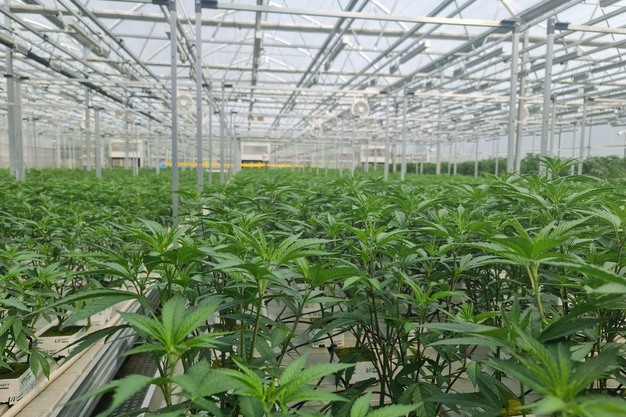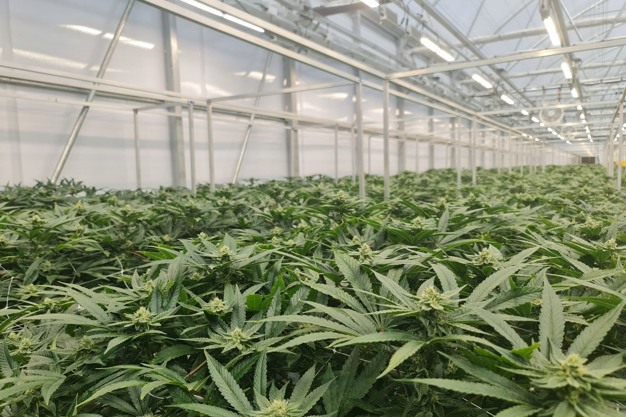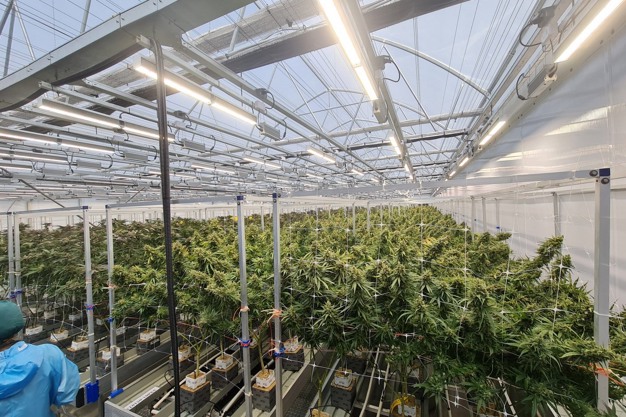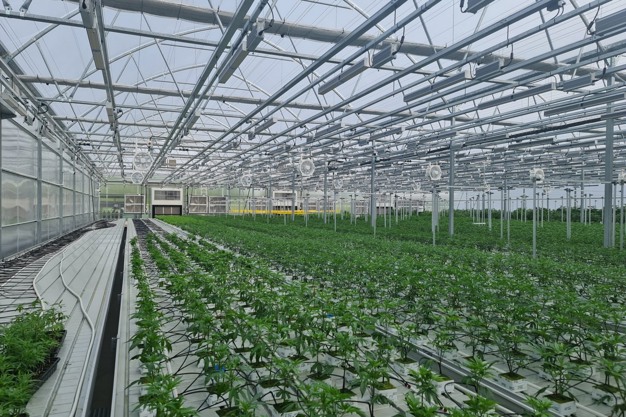Thailand's cannabis journey started with the legalization of industrial hemp. "In the northern mountain areas, there was a push to help farmers that used to grow poppy flowers for opium. Now, they had the opportunity to convert to another crop," explains Micheline Widler, Sales Manager at Cannavigia. Micheline started at the company with the function of Business Development Asia. On the cultivation side, she started introducing the concept of traceability. "Now that the industry is maturing, we can see that the ones that give more attention to quality are the ones that are still around."
Thai Stick
Surviving the Thai market over the years has not been an easy feat, as many regulatory changes have happened. "In 2022, cannabis was officially no longer considered a category 5 narcotic, with the exception of extractions containing more than 0,2% THC. Yet the government didn't provide any clarity on what kind of extractions are meant. For example, are edibles considered extractions?" says Micheline. "After that, the government began introducing additional laws, such as no selling to minors, no selling to pregnant women, no selling in schools. After a while, there was still a lot of concern, and doctors started a petition to get cannabis back to medicinal use only."
At this point, there was also a big problem with illegal imports, Micheline says. "It was estimated that 70% of all cannabis available in the market was illegally imported. Still to this day, imports from Canada and the U.S. are a major challenge for the domestic market."
Navigating a competitive market
"Right now, giving importance to quality is what differentiates companies in the very competitive market in Thailand," says Timo Bongartz, Cannavigia's Chief Commercial Officer. "Today's Thai cannabis companies don't just want to serve the Thai market, they want to export as well. This is a development we've been seeing in the market. It's interesting to see that these companies that were already producing cannabis have now stabilized their production and have started to focus on following compliance and regulations to be able to export to other markets. In December 2023, the first Thai cannabis was exported to Australia," Timo says.
Sustainability
The Thai cannabis market sees different methods of cultivation: from indoor facilities to greenhouses. "For greenhouses, the high humidity is a big challenge. Greenhouse cultivators need to take the right measures to bring the humidity down. There are even some outdoor cultivators, but that is even more challenging and only seasonal," Timo says. According to Timo, the market has recently been demanding indoor product, making the prices higher.
Another challenge is the fact that it's difficult to import organic products, such as beneficial insects or organic substrates. "As a result, many cultivators opted for growing hydroponically in rockwool. Yet because Thailand is a major coco producer, we are starting to see a shift. At the start, the coco produced in Thailand was not of good enough quality. Now that it has improved, local coco gives cultivators an organic option."
Going international
Timo explains something that is unique to Thailand: using the domestic market to jumpstart your international strategy. "This is something that is very unique to Thailand compared to other markets. These companies have the ability to supply the domestic market, generate cash flow, and use this money to invest into internationalization," he explains.
In order to export to Europe, companies need to comply with EU-GACP, which is not equal to Thai GACP. "At this point, Thai GACP is not enforced, it's a choice," Micheline explains. "For companies wanting to export to Europe and needing to achieve EU-GACP, Thai GACP has limited business value." According to Timo, it's important to not see GACP as a burden but as a way to futureproof your business. "There are always external factors influencing cannabis businesses around the world. It's still a new industry, so change is constant. As a result, you never know what can happen to your company. Yet with EU-GACP (and potentially EU-GMP), you can always supply to countries where it's legal. So it's a major differentiation from your competition. We would advise companies to see EU-GACP as an opportunity, not as a threat," Timo says.
What is the role of a track and trace system here? "If a cultivator only supplies the recreational domestic market, I would say using a track and trace software is not necessary but valuable. But for companies that have the goal of exporting to other markets or want to produce to medical standards, it's a great benefit. Some of our customers are already implementing the Cannavigia software in order to test their processes and train their teams while still producing for the domestic market. It gives them the opportunity to professionalize the business and get ready for their next phase: going international," Timo says.
For more information:
Cannavigia![]()
www.cannavigia.com
